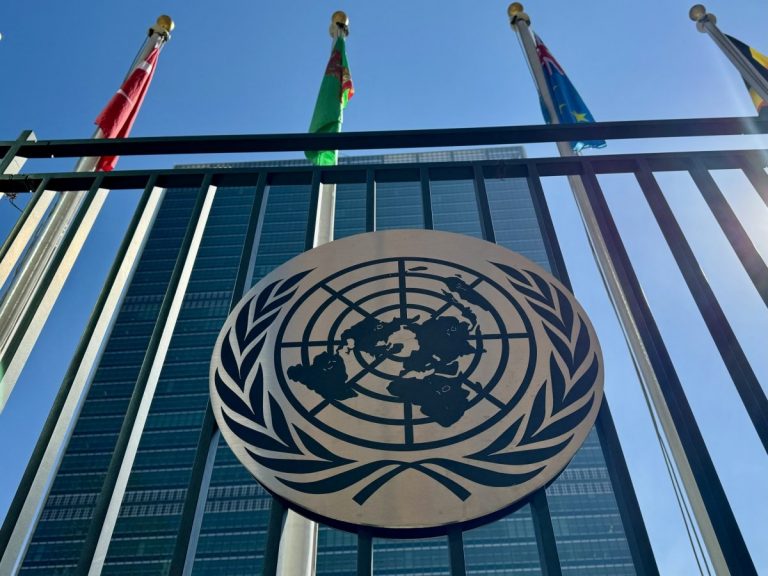
Artificial intelligence is forecast to become a $4.8 trillion global industry by 2033 — a figure that nearly equals the size of Germany’s economy. But according to a new report from the United Nations Conference on Trade and Development (UNCTAD), the economic rewards of AI are not being evenly distributed.
The agency warns that the rapid acceleration of AI risks compounding inequality both within and between countries, while also raising red flags about job losses, creative ownership, and technological domination by a handful of wealthy nations and corporations.
UNCTAD says AI has already begun transforming economies by delivering massive productivity gains and catalyzing digital innovation. But its benefits, the agency notes, remain “highly concentrated.”
Register for Tekedia Mini-MBA edition 19 (Feb 9 – May 2, 2026).
Register for Tekedia AI in Business Masterclass.
Join Tekedia Capital Syndicate and co-invest in great global startups.
Register for Tekedia AI Lab.
“The benefits of AI-driven automation often favor capital over labor, which could widen inequality and reduce the competitive advantage of low-cost labor in developing economies,” it said.
Most of the value is accruing to developed countries, particularly the United States and China, as well as a small group of powerful tech companies. The UN body says this concentration threatens to widen existing inequalities, particularly for developing nations that already struggle with limited digital infrastructure, inadequate investment in education and research, and exclusion from key policy discussions.
Beyond inequality, the UN also highlighted growing anxieties around job displacement. The report says 40% of global jobs could be affected by AI-driven automation, echoing previous warnings from the International Monetary Fund.
In January, the World Economic Forum released a survey showing that 41% of employers were considering reducing their workforce in areas where AI tools could take over, particularly administrative, clerical, and data-related functions. This pattern, UNCTAD warns, may hit developing countries especially hard, as many of them depend on labor-intensive sectors and a youthful workforce.
In addition to the impact on labor, UNCTAD flags that AI-driven automation tends to reward capital over labor as the deeper structural risk. This means the gains flow largely to owners of technology rather than workers. That shift, it said, could undermine the traditional comparative advantage of low-wage economies and accelerate a global race to the bottom where only the richest countries can compete in AI development, while others fall further behind.
But a newer concern has been rapidly gaining traction among artists, writers, musicians, journalists, and digital creators — the issue of copyright infringement in the age of AI.
Several reports underscore that as AI tools grow more powerful, they are increasingly being trained on vast datasets sourced from publicly available human-made content — everything from books and articles to images, music, and films. These materials, often copyrighted, are used without obtaining permission from creators or providing compensation, raising legal and ethical questions that have yet to be resolved.
Creators around the world have begun to push back with the argument that their intellectual property is being used to train systems that can then mimic or even replace their work, all without recognition or financial return. Lawsuits have already been filed against some major AI developers, with plaintiffs claiming copyright violation and unfair commercial use.
The UN report underpins this tension, warning that unchecked AI development could strip value from creative labor and undermine the already precarious livelihoods of many working in the arts and content industries.
UNCTAD also points to the fact that only a handful of companies, such as Apple, Nvidia, and Microsoft — are controlling vast swaths of the AI landscape. These firms now hold market valuations comparable to the GDP of the entire African continent. More than 40% of global corporate spending on AI research and development is concentrated among just 100 companies, most of them headquartered in the U.S. and China. This corporate consolidation is not just a matter of economics; it gives these companies outsized influence in setting the rules, deciding how AI is built, and determining who gets access.
What worries the UN is that 118 countries, most of them in the Global South — are effectively shut out of ongoing global conversations about AI governance, regulation, and ethics. Without a seat at the table, these countries risk being permanently sidelined in shaping how AI unfolds, despite standing to suffer the most if inequalities worsen.
Still, the report acknowledges that AI does not have to be a zero-sum game. It says the technology has the potential to create new industries, empower workers, and lift productivity across sectors — but only if countries invest deliberately in reskilling, education, and inclusive infrastructure.
UNCTAD called for a multilateral effort to prevent the AI boom from becoming another chapter in global economic exclusion. It recommended that governments and international institutions promote open-source AI tools to allow broader access, push for transparency around how AI models are trained and used, and establish mechanisms to ensure the fair use of intellectual property, particularly in how AI tools are trained on human-created content.
According to the report, the international community must also prioritize governance frameworks that allow all nations, not just the most technologically advanced, to participate in decision-making. That includes shared investment in AI infrastructure, data access, and regulation that protects both workers and creators.
“AI can be a catalyst for progress, innovation, and shared prosperity — but only if countries actively shape its trajectory,” the report concludes. “Strategic investments, inclusive governance, and international cooperation are key to ensuring that AI benefits all, rather than reinforcing existing divides.”



